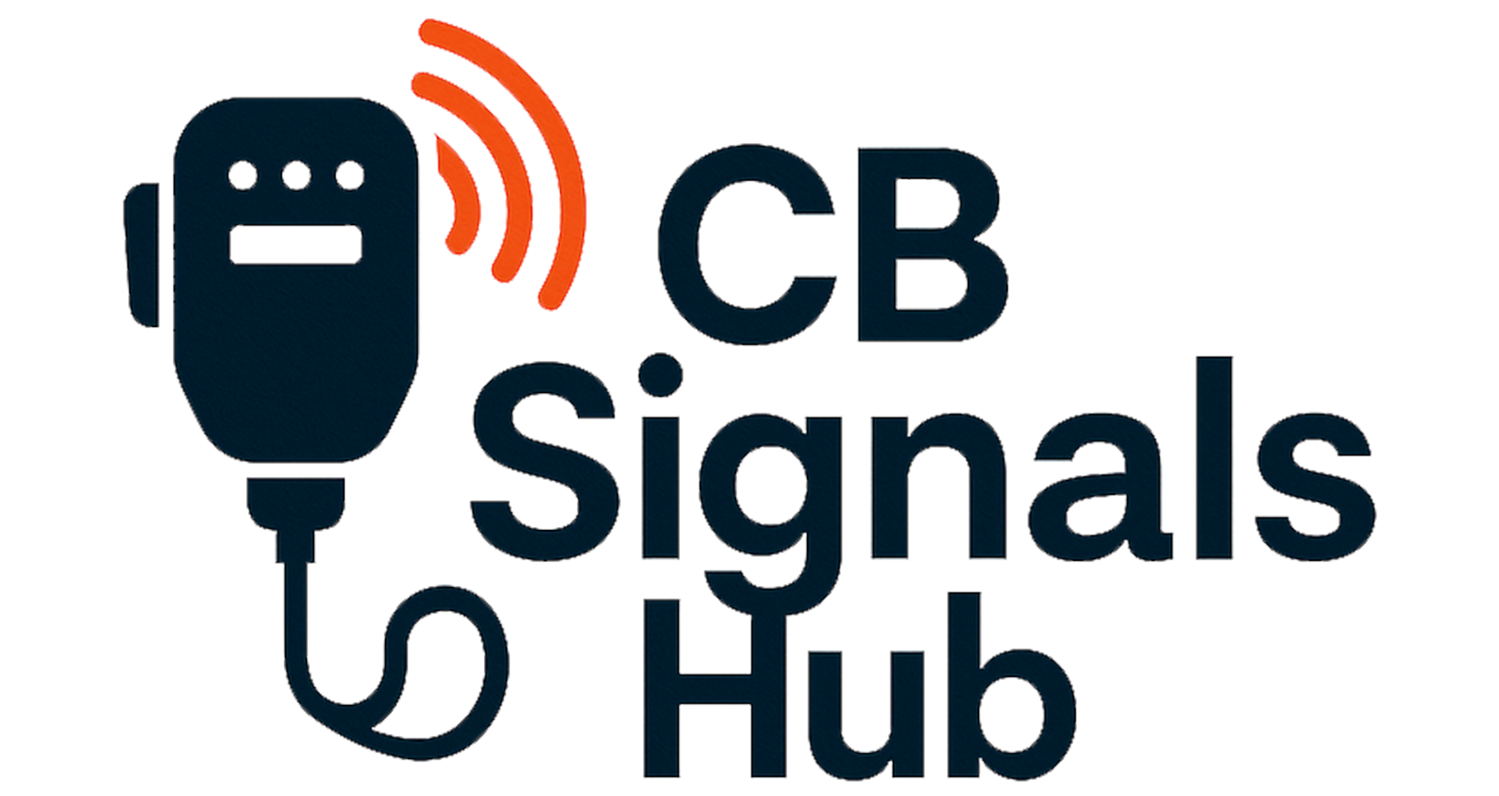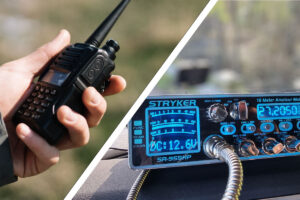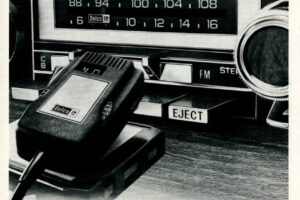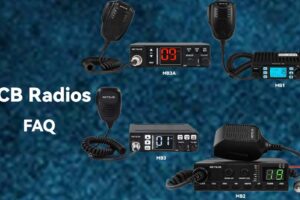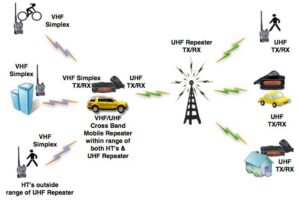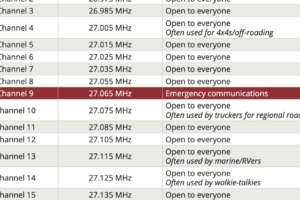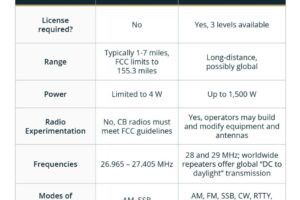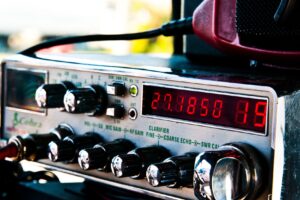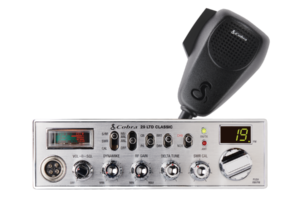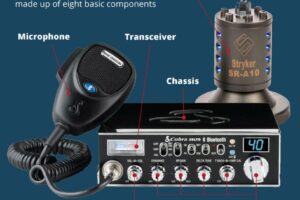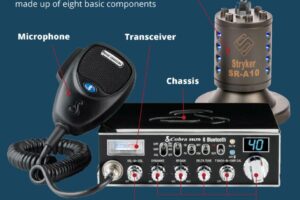Cb Radio Preppers: Essential Survival Communication Tips

CB Radio Preppers CB radios are vital for preppers. They offer reliable communication during emergencies.
Preparedness is key in uncertain times. CB radios provide a lifeline when other communication systems fail. They are affordable, easy to use, and do not rely on cell towers or the internet. This makes them perfect for preppers. Whether you are new to prepping or an experienced survivalist, understanding CB radios is crucial.
They help you stay connected with family, friends, and other preppers. This introduction will explore why CB radios are essential for preppers. Let’s dive into the reasons that make them a must-have for any emergency preparedness plan.
Introduction To Cb Radio For Preppers
In an emergency, staying connected with your community can be a lifeline. CB radios, or Citizens Band radios, are a reliable communication tool that preppers often turn to. They are easy to use, affordable, and can be a game-changer when traditional communication systems fail. Let’s dive into why CB radios are essential for preppers.
Importance Of Communication
During a disaster, information is power. Knowing what’s happening around you can help you make better decisions for your safety and your family’s well-being. A CB radio allows you to receive real-time updates and share information with others.
Imagine a scenario where cell towers are down and internet access is gone. Your CB radio can be your link to the outside world. It helps you stay informed about road conditions, weather changes, and potential dangers. This kind of communication can be the difference between staying safe and finding yourself in a precarious situation.
Brief History Of Cb Radios
CB radios have been around since the 1940s. They gained popularity in the 1970s, especially among truckers. Back then, truck drivers used CB radios to communicate about road conditions, speed traps, and to share a bit of camaraderie on long hauls.
Over time, the use of CB radios expanded beyond truckers. They became a popular tool for hobbyists, off-road enthusiasts, and yes, preppers. The ability to communicate over short distances without relying on external infrastructure makes CB radios a versatile and practical tool.
Have you ever used a CB radio? It’s surprisingly easy. You don’t need a license to operate one, and the equipment is relatively inexpensive. This accessibility makes it an excellent option for anyone looking to enhance their emergency preparedness plan.
So, what are you waiting for? Consider adding a CB radio to your prepping gear. It might just be the tool that keeps you connected when you need it most.
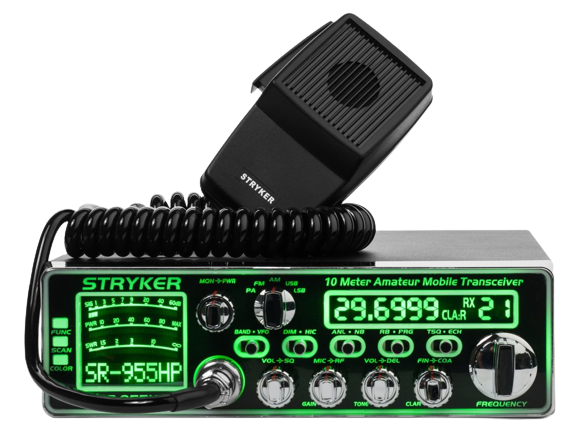
Credit: strykerradios.com
Choosing The Right Cb Radio
When you’re diving into the world of CB radio prepping, selecting the right CB radio is crucial. The right choice can mean the difference between clear communication and frustrating static. But how do you know which one suits your needs best?
Handheld Vs. Mobile Units
Handheld CB radios are compact and portable. They are perfect for preppers who need mobility and versatility. You can easily carry them in your backpack or emergency kit. However, they often have limited range compared to mobile units.
Mobile units, on the other hand, offer greater power and range. These are typically installed in vehicles and can provide more reliable communication over longer distances. If your prepping plans include staying on the move, a mobile unit might be a better choice.
So, ask yourself: Do you need portability or power? This can guide your decision effectively.
Top Recommended Models
There are several models that stand out in the CB radio world. The Cobra HHRT50 is a fantastic handheld option. It’s known for its rugged design and reliable performance.
For mobile units, the Uniden Bearcat 980SSB is highly recommended. It offers excellent range and comes with advanced features like single side band (SSB) capability. This model is a favorite among preppers who need robust communication options.
Think about your specific needs and scenarios. Which model aligns best with your prepping strategy?
In the end, choosing the right CB radio is about matching the device to your unique requirements. Whether you prioritize portability or range, there are options out there that will help you stay connected when it matters most.
Setting Up Your Cb Radio
Setting up your CB radio is crucial for effective communication in emergencies. A well-installed CB radio ensures you stay connected with other preppers. Follow these steps to set up your CB radio correctly.
Essential Equipment
To begin, gather all necessary equipment. You will need a CB radio unit. Get a suitable antenna for your CB radio. An external speaker can also enhance sound quality. Don’t forget the mounting hardware for securing the radio and antenna.
Installation Tips
First, choose the right location for your CB radio. The radio should be easily accessible. Secure the radio with the provided mounting hardware. Connect the power cable to the vehicle’s battery. Ensure a solid and stable connection.
Next, mount the antenna. The roof is the best location for good signal reception. Use the provided brackets to secure the antenna. Run the antenna cable to the CB radio unit. Avoid sharp bends in the cable to prevent signal loss.
Finally, test your setup. Turn on the CB radio. Check for any interference or weak signals. Adjust the antenna for the best performance. Make sure you can clearly receive and transmit messages.

Credit: radiofreeq.wordpress.com
Operating Your Cb Radio
CB Radio Preppers can easily operate their CB radios for emergency communication. Stay informed and connected during crises. Practice regularly for clear and efficient use.
Operating a CB radio may seem daunting at first. However, understanding the basics makes it much easier. This section will guide you through the fundamental controls, functions, and common terminology.Basic Controls And Functions
Understanding the basic controls of your CB radio is crucial. The on/off switch powers the unit. Use the volume knob to adjust the sound level. The squelch control helps you filter out background noise. This makes it easier to hear incoming transmissions. The channel selector lets you switch between different channels. Most CB radios have 40 channels. The microphone allows you to transmit your voice. Press the push-to-talk button to speak.Common Terminology
Familiarize yourself with common CB radio terms. “Break” means to interrupt a conversation. “Copy” signals that you understand a message. “Roger” indicates you received and understood the transmission. “10-4” is another way to say “okay.” “QSL” means “I acknowledge receipt.” Knowing these terms helps you communicate clearly. It also ensures smoother conversations. Operating a CB radio can enhance your prepping strategy. With practice, you’ll become proficient quickly. Enjoy the process and stay connected. “`Effective Communication Practices
CB radio preppers rely on effective communication practices to stay connected during emergencies. Clear, concise messages ensure vital information is shared quickly. Proper etiquette helps maintain order and reduces misunderstandings.
Effective communication is vital for CB radio preppers. Clear and concise messages can save time and prevent misunderstandings. Knowing how to use your CB radio effectively ensures that your messages reach their intended recipients. Let’s explore some key practices for effective communication.Clarity And Brevity
Always speak clearly into the microphone. Enunciate each word to ensure it’s understood. Avoid slang or jargon that others might not know. Keep your messages short and to the point. Long messages can be confusing and take up valuable airtime. Repeat important information. This ensures the listener can confirm the details. Use simple words. This helps avoid miscommunication, especially if the listener’s first language isn’t English.Using Cb Radio Channels
Know which channels to use. Channel 9 is for emergencies. Channel 19 is popular among truckers for general communication. Avoid using these channels for casual conversations. This keeps them clear for important messages. Choose a less busy channel for regular chat. This reduces interference and improves clarity. Listen before speaking. Ensure the channel is clear. This prevents talking over others. Always identify yourself when you start talking. This helps others know who is speaking and maintains order on the channel. Practice these techniques. They will improve your CB radio communication skills and ensure you can relay important messages effectively. “`
Credit: www.wearecb.com
Cb Radio Etiquette
CB radio preppers should follow basic etiquette for clear communication. Use short, clear phrases and avoid interrupting others. Always identify yourself before speaking.
CB Radio Etiquette is crucial for maintaining a harmonious and efficient communication network, especially for preppers who rely on these devices during emergencies. Understanding the dos and don’ts can help you make the most of your CB radio and ensure you are a respected and effective communicator.Respectful Communication
Respectful communication is the cornerstone of effective CB radio use. Always start your transmission by identifying yourself. This helps others know who they are speaking with and maintains a sense of order. Keep your messages concise and to the point. Long-winded transmissions can clog up the channel and frustrate other users. If you need to have a longer conversation, consider moving to a less busy channel. Use standard CB lingo and codes to enhance clarity. This ensures that your messages are understood by all users, regardless of their experience level. For example, saying “10-4” instead of “I understand” is both quicker and universally recognized.Avoiding Common Mistakes
One common mistake is stepping on others’ transmissions. Always listen before you speak to ensure the channel is clear. Interrupting can lead to confusion and missed messages. Avoid using offensive or inappropriate language. CB radios are often used by a wide range of people, including families. Keeping your language clean makes the network more pleasant for everyone. Another frequent error is neglecting to adjust your squelch control. This can result in picking up too much background noise, which can be disruptive. Adjust your squelch just enough to cut out the static, but not so much that you miss weaker signals. Engage with the CB community by offering help and information when you can. This fosters a sense of camaraderie and makes you a valued member of the network. Have you ever had a frustrating experience with CB radio communication? Reflecting on these moments can help you understand the importance of etiquette. By following these simple guidelines, you can ensure a smoother and more effective communication experience.Maintaining Your Cb Radio
Maintaining your CB radio is crucial for reliable communication. Regular upkeep ensures your device functions well during emergencies. Proper maintenance involves regular checks and troubleshooting common issues.
Regular Checks And Upkeep
Perform regular checks on your CB radio to ensure it works properly. Inspect the antenna for any damage or loose connections. A damaged antenna can affect signal quality. Clean the radio and its components to remove dust and debris. Dust can interfere with the device’s performance.
Check the power supply and connections. Ensure the radio is securely connected to a power source. A stable power supply is essential for consistent operation. Also, test the microphone for clear audio transmission. A faulty microphone can hinder communication.
Troubleshooting Common Issues
Sometimes, your CB radio may face common issues. Poor signal reception is a frequent problem. Check the antenna and its connections. Ensure the antenna is in good condition. Adjust its position for better signal strength.
If the radio does not turn on, inspect the power connections. Ensure the power source is active and the connections are secure. If the audio is unclear, clean the microphone and check its connections. A dirty or loose microphone can cause poor audio quality.
Advanced Tips For Preppers
For preppers, having a reliable communication system is crucial. CB radios provide an essential link during emergencies. Let’s dive into some advanced tips for preppers to maximize their CB radio usage.
Integrating With Other Communication Systems
CB radios can be integrated with other communication systems. This ensures you stay connected. Use a multi-band radio. It can communicate on different frequencies. This allows you to connect with HAM radios, GMRS, and more.
Consider adding a scanner. Scanners monitor police, fire, and other emergency frequencies. This provides real-time information. It helps you stay informed about local events.
Invest in a quality antenna. A good antenna extends your range. It improves the clarity of your transmissions. An external antenna on a vehicle can boost your signal.
Emergency Preparedness
Have a power backup plan. Power outages are common during emergencies. Use battery backups or solar chargers. This keeps your CB radio operational.
Store extra batteries. Batteries can deplete quickly. Keep a stockpile ready. Rechargeable batteries are a good option.
Know your channels. Pre-plan which channels to use. Channel 9 is the emergency channel. Channel 19 is popular for general information.
Practice using your CB radio. Familiarity is key. Conduct regular tests and drills. This ensures you are ready when needed.
Program important frequencies. Save time during an emergency. Pre-program frequencies for local services. Include police, fire, and medical services.
Legal And Safety Considerations
When venturing into the world of CB radio prepping, understanding legal and safety considerations is crucial. Ensuring compliance with regulations and prioritizing safety can enhance your experience and preparedness.
Regulations And Licensing
CB radios operate within specific frequency ranges. These frequencies are regulated by government authorities. In the United States, the Federal Communications Commission (FCC) governs CB radio use.
Users don’t need a license to operate a CB radio. However, they must follow certain rules. For instance, CB radios must use approved equipment. Users must also avoid broadcasting obscene language.
Respecting these regulations helps maintain clear and effective communication. It also prevents interference with other important frequencies.
Safety Precautions
Safety is paramount when using CB radios. Proper installation of your CB radio in your vehicle or home is essential. Ensure antennas are securely mounted and not obstructing views.
Always keep the microphone within easy reach. This prevents distractions while driving. Additionally, never use a CB radio during hazardous weather conditions.
CB radios can be a vital communication tool in emergencies. Ensure you have a backup power source. This guarantees your CB radio remains operational during power outages.
By following these safety precautions, CB radio preppers can communicate effectively while ensuring their safety.
Frequently Asked Questions
Is Cb Radio Good For Preppers?
Yes, CB radio is good for preppers. It provides reliable communication, especially in emergencies, with no dependency on cellular networks.
What Cb Channel Do Preppers Use?
Preppers commonly use CB channel 3 for communication. This channel is popular for emergency and survival discussions.
What Is The Best Radio Communication For Preppers?
The best radio communication for preppers is the Baofeng UV-5R. It offers affordability, durability, and versatility.
What Is The Best Cb Radio For Apocalypse?
The Uniden Bearcat 980SSB is the best CB radio for an apocalypse. It offers reliable communication, SSB capability, and excellent durability.
Conclusion
Cb Radio Preppers offer a reliable way to stay connected. These radios are simple to use and effective in emergencies. They ensure communication when other systems fail. Having a CB radio can be crucial for preppers. It provides peace of mind and safety.
Stay prepared, stay safe. Invest in a CB radio today.
